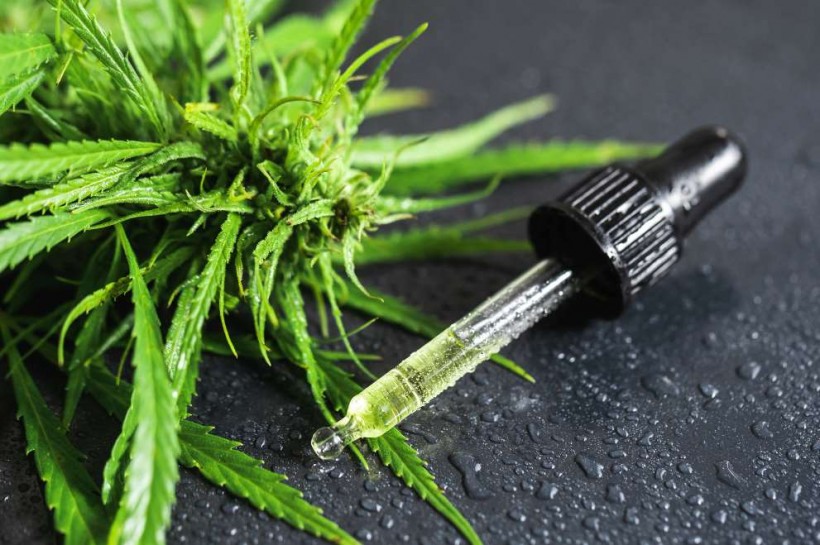What is CBD Oil?
Warning: Undefined variable $post in /home/dietofli/public_html/wp-content/plugins/code-snippets/php/snippet-ops.php(584) : eval()'d code on line 3
Warning: Attempt to read property "ID" on null in /home/dietofli/public_html/wp-content/plugins/code-snippets/php/snippet-ops.php(584) : eval()'d code on line 3
The estimated reading time is 6 minutes
Warning: Undefined variable $post in /home/dietofli/public_html/wp-content/plugins/oxygen/component-framework/components/classes/code-block.class.php(115) : eval()'d code on line 3
Warning: Attempt to read property "ID" on null in /home/dietofli/public_html/wp-content/plugins/oxygen/component-framework/components/classes/code-block.class.php(115) : eval()'d code on line 3

CBD, a therapeutically potent cannabinoid in cannabis, is fast emerging as a natural remedy for chronic ailments like epilepsy, acne, broken bones, etc.
It’s non-psychoactive, and its products come in several forms like capsules, CBD gummies, CBD oil sprays and edibles mixed with foods/drinks or ingested using droppers or pipettes.
Its main source is the hemp, a fast-growing plant renowned for producing full-spectrum hemp oil with prolific fatty acids, and potent bioactive compounds extracted from its seeds.
How CBD Oil Exerts Medical Benefits
There are two kinds of cannabinoid receptors; cannabinoid receptor type 1 and cannabinoid receptor type 2. CBD has a lower affinity for both unlike THC with a strong binding affinity for the two receptors.
Its therapeutic benefits occur indirectly through activation of non-cannabinoid receptor channels like:
- PPAR- gamma Receptors: These receptors are situated on the cell’s nuclei and decrease beta-amyloid plague, dopamine release, insulin sensitivity, and lipids uptake. This aids to combat Alzheimer’s, schizophrenia and diabetes.
- TRPV1 receptors- TRV1 receptors regulate inflammation, temperature, and pain. Capsaicin, anandamide and other cannabinoids like CBC, CBD, etc. are among substances targeting the TRPV1.
- 5-ht1A Receptor: This receptor aids in regulating anxiety, appetites, vomiting, nausea, addiction, sleep and pain perception. CBDA, the raw form of CBD, exhibits a higher affinity for this receptor than CBD.
- Inhibiting Fatty Acid Amide Hydrolase (FAAH): Inhibition of FAAH leads to higher levels of anandamide and endocannabinoids with plenty of health benefits.
- Antagonizing GPR55 Receptors: These regulators are widely dispersed in the brain, more so in the cerebellum. It regulates blood pressure and bone density, explaining CBD’S therapeutic role in high blood pressure and osteoporosis. When activated, the GPR55 fosters cancer cell proliferation.
Which is Best for Pain Relieving, THC or CBD?
According to research, THC is best for crump related pain and spasticity while CBD is good for soothing neuropathic and inflammatory pain. A study conducted in 2007 revealed that CBD reduces osteoarthritis-related inflammation and averts nerve damages.
A recent study in Neurology also suggested that THC is potent for mitigating chronic nerve pains. And another one, engaging 177 cancer patients, postulated that THC alone wasn’t effective at pain reduction; patients who took combinations of THC and CBD reduced their pain by 30% compared to the placebo.
Combining the two, therefore, proves effective in pain management and enables users to lead their daily routines without feeling intoxicated due to CBD’s ability to numb the high effect in THC.
The Entourage Effect
There are dozens of terpenes and cannabinoids (apart from THC and CBD), working together to deliver different synergetic effects. For instance, CBC, the third most prevalent compound in cannabis exhibits anti-inflammatory benefits similar to those of CBD.
The entourage effect, therefore, refers to benefits experienced upon ingestion of multiple cannabinoids together and in this case, consuming both THC and CBD results in effective pain relief.
Is CBD Oil Addictive?
Unlike THC, CBD oil is non-addictive and doesn’t subject its users to withdrawal symptoms. In November 2017, WHO released a detailed report examining CBD and its likelihood of generating dependency among its users.
Tests were conducted and the researchers concluded that it exhibits zero dependency. They also didn’t find solid evidence linking it to public health-related problems.
How to Consume CBD Oil
Before consuming CBD oil, consult your cannabis doctor or physician. In case you’re fit to consume it, abide by the instructions to avoid under or over-consumption. Altering your dosage or going against the consumption patterns causes undesired effects like decreasing or increasing the blood concentration ratios of CBD.
Also, remember that cannabidiol metabolism varies due to the anomalies contained in cytochrome P-45O (CYP450), the enzyme system responsible for metabolizing cannabidiol.
It behaves differently in people due to varying factors like genetics, liver problems or ingesting other prescribed drugs with CBD oil. If you suspect that your body isn’t metabolizing CBD oil as expected, enroll for a cytochrome P-45O (CYP450) enzyme system test before adjusting your dosage.
Benefits of Using CBD Oil
Here are some of the health benefits of consuming the best CBD oil.
CBD Oil Relieves Pain
Our bodies produce endocannabinoids system binding with cannabinoid receptors in our nervous systems. CBD, therefore, reduces pain through influencing the endocannabinoid receptor activities in our bodies, interacting with neurotransmitters and reducing inflammation.
For instance, a study done on rats revealed that CBD injections soothes pain response to surgical incision and another one showed that oral CBD treatment has a mega impact in reducing inflammation and sciatic nerve pains.
Combating Depression and Anxiety
CBD oil is a promising remedy for depression and anxiety. In a study involving 24 people, each receiving either 600 mg of placebo or CBD revealed that the groups that consumed CBD products experienced a significant reduction in cognitive impairment, speech discomfort, and less anxiety.
The oil is now being used to treat anxiety related issue in children experiencing post-traumatic stress disorders and insomnia.
It has exhibited positive antidepressant like effects in diverse animals with such qualities being associated with its ability to impact on brain receptors for serotonin, a neurotransmitter regulating social behavior and mood.
Alleviating Cancer Related Symptoms
CBD oil reduces cancer-related symptoms and side effects like pain, nausea or vomiting. A study conducted on 16 people undertaking chemotherapy showed that combinations of THC and CBD boosted reduction of chemotherapy-related nausea and vomiting better than normal treatments.
Test tubes and animal studies proved that CBD contains anti-cancer properties like triggering cell death in breast cancer cells in humans. And another study also revealed that CBD inhibits the aggressive spread of breast cancer cells in rats. More studies are being conducted to determine the beneficial properties of CBD linked to cancer treatment.
Side Effects of CBD Oil
CBD oil side effects include dry mouth, nausea, changes in appetite and mood, anxiety, diarrhea dizziness, and vomiting. The use of CBD Oil has also been linked to increased level of enzymes activities in livers causing inflammation or damage.
Conclusion
There isn’t a clear answer regarding whether CBD is better for treating chronic pain than THC or vice versa. Both of them exhibit unique benefits, and in regards to severe pain, there is proof that they’re more effective when used together due to the entourage effect.
Nonetheless, medical marijuana offers plenty of benefits though its products vary in effectiveness. So, to get the best results, purchase CBD oil today and get a natural, enchanting treatment option for adverse health conditions.
Sources:
https://www.sciencedirect.com/science/article/pii/S1059131116000054
https://www.karger.com/Article/Abstract/489287
https://www.ncbi.nlm.nih.gov/pmc/articles/PMC5101100/














